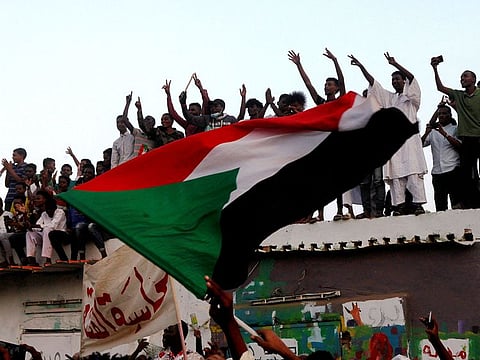Sudan transition deal is cause for optimism
There had been concerns raised about whether army will share power

A fragile deal has emerged giving rise to hopes that Sudan will transition to civilian rule. Just as the picture was beginning to appear gloomy, a power-sharing agreement was reached by the ruling military council and opposition leaders. The UAE, on Friday, expressed its backing for the deal, saying that it lays the foundation for an “auspicious political transition”. After weeks of violent protests, both sides agreed to take turns in heading a sovereign council to lead the transition. The UAE expressed hope that this important step will mark a new phase during which security and stability would prevail.
The protest leaders who took part in the talks showed remarkable flexibility when they agreed to a military general running the country for the first 21 months of the transition. This is to be followed by a civilian rule for the next 18 months, according to a statement from the Sudanese Professionals Association, which spearheaded the protests.
The sovereign council will be the strategically important country’s highest authority. It will comprise five military members and five civilian appointees, with an additional civilian member agreed by the two sides, and the deal will be finalised by Monday.
It is up to the Sudanese to ensure the timely and transparent implementation of the transition agreement and to resolve any outstanding issues through dialogue.Gulf News
Before this deal was hammered out, there had been concerns whether the army will be willing to share power. The deal is cause for optimism as it had put on display the unity of the opposition, and also due to the promise of an independent inquiry into the events of June 3, when security forces opened fire on protesters in the capital Khartoum, killing dozens and injuring many more.
Now, there are realistic hopes that the new deal could break the political deadlock that has gripped the country since the military toppled the regime of President Omar Al Bashir in April, after a popular protest against his three-decade rule.
As details of the new deal emerged, one thing became quite clear. Both sides had made concessions. It is to be seen if there is enough trust between the parties to ensure that agreement is implemented in full.
The Sudanese transitional agreement has highlighted the importance of dialogue when resolving such matters. Several dozens have been killed in the turmoil that has plagued Sudan. Now, it is up to the Sudanese to ensure the timely and transparent implementation of the transition agreement and to resolve any outstanding issues through more dialogue.



